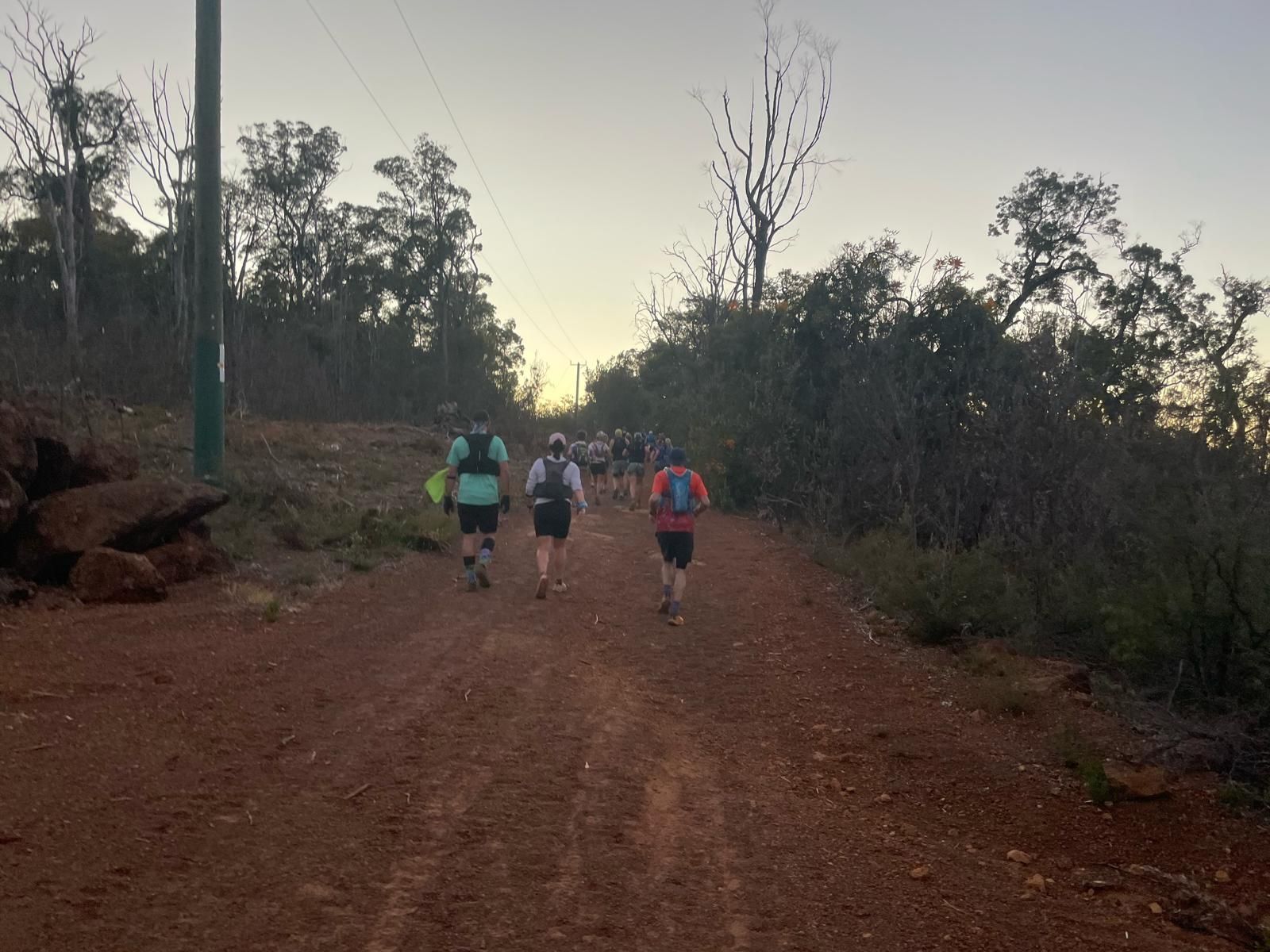
COACH'S CORNER - Nausea in a race by Greta Truscott
Greta Truscott from Rejoov runners covers vomiting when racing to help you get through it, and when to recognise it's too dangerous to continue

Has this happened to you? How did you deal with it mentally and physically? What caused it? Can this risk be minimised, can it be prevented next time or is it one of those unknown challenges that needs to be problem solved on the day?
Pre-lude: I had heard of other runners vomiting during a race and wondered what I’d do if it happened to me. Well it finally happened to me in New Zealand’s UTMB Tarawera 103km 2,200m. Things were going well, on pace, good nutrition and hydration and focused. Then suddenly I vomited around the 68km mark until I dry reached and nothing else would come out, it seemed like a huge uncontrollable, waterfall!! It was a big shock! “What caused this” and “could I keep going”, were thoughts going through my mind. Nutrition and hydration were great until that point, I was fit and didn’t feel too hot. This was so unexpected!!
Vomiting in an ultrarunning event seems to be a relatively common and can happen for all kinds of reasons, ranging from normal physiological responses to more serious medical concerns. Understanding the different levels of vomiting, the causes, and how to respond appropriately can make a significant difference in how runners manage their race and health.
Levels of Vomiting in Ultramarathons
- Mild Nausea: This is a slight queasiness or discomfort in the stomach, but not yet leading to vomiting. This is common in ultrarunners, often at the start line and in the early stages due to nerves and especially in the later stages of the race, possibly caused by factors such as hard exertion, dehydration, overeating, or digestive distress.
- Occasional Vomiting: A runner might vomit a small amount once or twice, often due to overexertion, dehydration, or the consumption of too much food or fluid at once. This is often temporary, and if the vomiting stops after a short period, it might not require stopping the race.
- Persistent Vomiting: Continuous vomiting that doesn’t improve or is recurrent over several hours may indicate a more serious issue. This could be caused by electrolyte imbalances, inadequate nutrition, or gastrointestinal problems. At this stage, the runner should seriously consider stopping or seeking medical attention.
- Severe Vomiting/Uncontrolled Vomiting: This is when a runner is vomiting constantly or uncontrollably and cannot keep fluids or food down. It can lead to dehydration, severe electrolyte imbalances, and a risk of other complications such as nausea, dizziness, or fainting. This level of vomiting is dangerous and typically requires medical intervention. Continuing to run under these conditions is risky and can lead to life-threatening complications.
Common Causes of Vomiting in Ultramarathons
- Dehydration and Electrolyte Imbalances: Inadequate hydration or losing too many electrolytes (sodium, potassium, etc.) through sweat can cause nausea and vomiting. Sodium is especially important in ultramarathon running to maintain fluid balance and prevent hyponatremia (low sodium levels).
- Gastrointestinal Distress: The act of running for extended periods can slow down or disrupt digestion. If the stomach is too full or food isn’t digesting well, it can lead to vomiting. Eating too much or the wrong kinds of food (i.e. substances that you’re not used to, high-fat or hard-to-digest foods) can trigger nausea.
- Overexertion and Fatigue: Pushing your body too hard, especially when you’re already tired, can cause the body to react by vomiting. Your body may struggle to keep up with the energy demands and begin to reject food and fluids.
- Heat Stress or Overheating: High temperatures and lack of proper cooling can lead to overheating. This can cause nausea, vomiting, and confusion. Heat-related illnesses like heat stroke or heat exhaustion can be serious, and vomiting might be a sign of the body struggling to regulate its temperature.
- Motion Sickness: The repetitive motion of running can cause some individuals to experience motion sickness, especially in very hilly or uneven terrain. This can lead to nausea and vomiting.
- Inadequate Fueling or Nutrition: Running ultra distances requires a constant intake of calories. If you’re not consuming enough or the right kind of fuel (carbs, protein, fats) at the right intervals, the body can begin to experience digestive problems, including vomiting.
- Underlying Medical Conditions: Sometimes, vomiting can be a sign of something more serious, like an infection or a more chronic condition (i.e. viruses, GI disorders like IBS).
How to Keep Going Despite Vomiting
- Hydrate Carefully: Take small sips of water or electrolyte drinks to stay hydrated. Sometimes sipping too much at once can make vomiting worse. Consider using an electrolyte solution or salt tablets to help balance sodium levels.
- Try Bland, Easily Digestible Fluids / Foods: Try carbohydrate electrolyte drink mixes that are easier to digest and chews or gels. You might find it easier to stomach real food like banana, watermelon, sandwich, salty potatoes, chips, noodles etc. Avoid overly greasy, spicy, or heavy foods or trying to force something in that you really can’t bear the thought of, which could make you vomit again. Try very small amounts and keep sipping, chewing as you go, which might go down better and stay in.
- Slow Down: If you’re vomiting due to overexertion, slow down your pace or take walk breaks to help stop further vomiting. See if you can pick up energy levels by keeping the substances in as you’re moving forward to help keep some momentum going. If you stop for too long it might be too hard to get going again. Try to keep your heart rate in check and avoid pushing yourself beyond your limits.
- Listen to Your Body: Take frequent rest breaks to allow your body to recover. Find shaded or cooler areas if heat is contributing to the vomiting, and allow yourself time to relax. If you need to stop for a breather and rest in the shade, by all means stop.
- Check for Signs of Dehydration: If you're not urinating, or your urine is very dark, you might be getting dehydrated. In this case, it’s important to hydrate slowly and steadily. Remember that blood in the urine can also occur during ultra running, which could be exercise-induced hematuria also called runner’s bladder or marathoners hematuria. This is common and often benign, but it's important to monitor and seek medical advice if it persists or is accompanied by other symptoms.
When It's Too Dangerous to Keep Running
- Continuous Vomiting: If you can't keep anything down, including water or electrolytes, and are vomiting persistently, this is a sign that you’re severely dehydrated or dealing with a serious GI issue. Continuing to run in this state can be dangerous.
- Severe Dizziness or Confusion: If you start feeling light-headed, confused, or faint, this could indicate that you’re experiencing low blood sugar, dehydration, or an electrolyte imbalance. These symptoms could lead to heat exhaustion or even heat stroke.
- Chest Pain or Shortness of Breath: These are serious symptoms that require immediate medical attention. They could be indicative of a cardiovascular issue or other life-threatening conditions.
- Significant Dehydration: If you notice signs like dry mouth, very dark urine, or a significant decrease in urination, it's important to stop and seek help. Dehydration can rapidly worsen in an ultra event and may lead to kidney failure, among other issues.
- Inability to Recover: If you’ve taken a break and are still feeling extremely weak or nauseous, it may be time to pull out of the race. Pushing through severe fatigue or sickness can put your body at further risk.
Key Takeaways
- Vomiting during an ultra is not uncommon, but it should be managed carefully.
- Stay hydrated and maintain your electrolyte balance.
- Pay attention to your body's signals: listen to mild nausea and adjust your pace or food intake accordingly.
- If vomiting persists or if you experience any other serious symptoms like dizziness, confusion, or severe dehydration, it’s best to stop and seek medical attention.
Your health should always come first in these extreme events, and knowing when to stop can prevent long-term harm. If in doubt, it's always safer to withdraw from the race than risk a serious medical situation.
Post-Script: After the vomiting was over, I started walking and sipping on my fluids (Tailwind >> water, carb, electrolyte mix) which was palatable. I tried other things like gels, clif bloks etc, but I couldn’t get in anything else. Energy levels seemed considerably dimished, but I sipped and slowly kept going running with walk breaks. I didn’t feel faint or hot. So all of this was at least reassuring that I could keep moving forwards. After making it through the next 3 checkpoints and the finish line, I worked out what I think caused the trouble, I’m pretty sure it was due to my ear!! I had an invasive ear operation 3months previous under general anaesthetic to replace the stirrup bone in the inner ear with a 4mm prosthetic. The ear drum had been removed and stuck back down. When I woke up post-op, the room was spinning and I vomited a lot with overnight hospital stay. My vestibular senses haven’t felt quite the same since and I think this contributed to motion sickness and the vomiting. I have more ultras planned and hopefully this doesn’t happen again, but at least I can be more prepared mentally and know how to deal with it if it does happen. Happy running everyone :)









